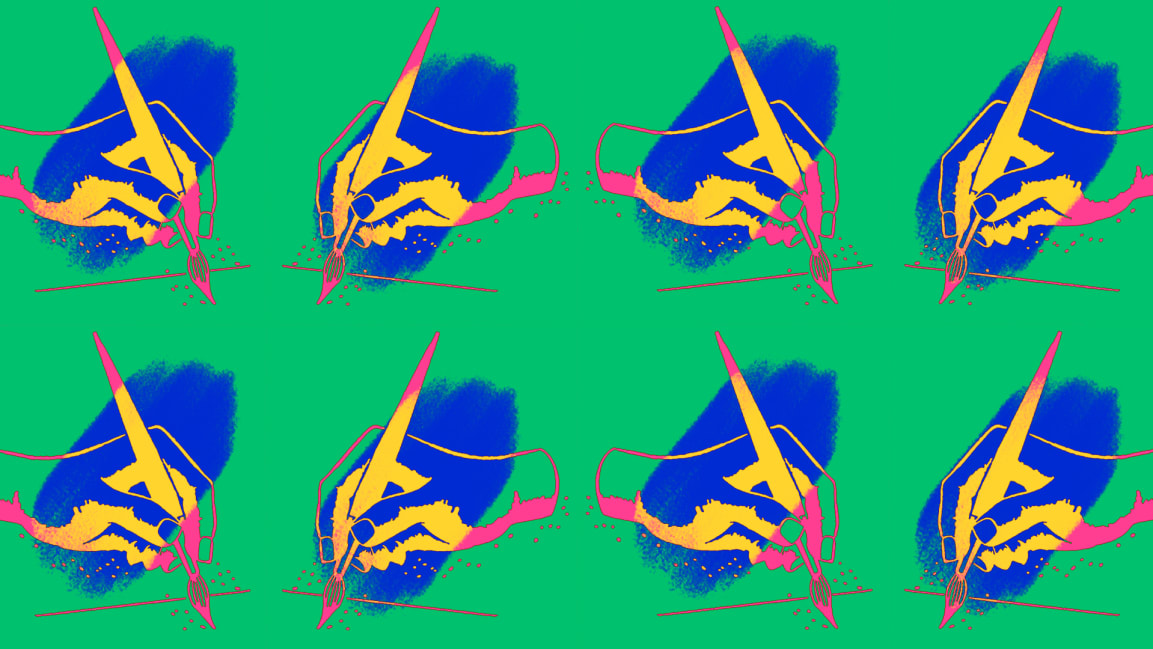
By Sarah Woster
Photo Credit:vCSA Images/Getty Images
Chances are that you have a lot of artists working for you, some you might not even know are artists. I am a painter and writer who usually has a day job. I’ve worked at ad agencies, the Metropolitan Museum, an autonomous car startup, and a boutique PR firm. I can’t afford not to work, but I often struggle to fit my mindset into the framework of most workplaces. A few places are great at utilizing people like me, and others fail miserably.
But as we enter 2022, solving challenges like shrinking our carbon footprint and halving our global emissions in 3,000 days requires creative problem-solving at a new pace and on a new level.
Artists are rarely supported in the workplace or given the power to implement their creative solutions, the occasional brainstorm or hackathon notwithstanding. In the wonderful book Out of Office, authors Anne Helen Peterson and Charlie Warzel talk about today’s productivity culture, which is performative and defines success as being known as the person who first responds to an email. But which employee would you choose if you manufacture candy canes and climate change has caused a severe peppermint shortage: the performative worker or the artist? Let’s say you run operations at the CDC but are struggling to track COVID cases in real time. Do you pick the guy who is good at responding to emails or the artist? What if you need stronger messaging to make voters care about a voting bill? I’d pick the Comic Con-obsessed costume designer in production over the manager with inbox zero every time.
Many smart organizations do bring in artists and listen to what they have to say. Long-term New York City Department of Sanitation artist-in-residence Mierle Laderman Ukeles helped develop Freshkills Park. Artists also address challenges outside their artistic specialty. Actress Hedy Lamarr coinvented radio frequencies sneaky enough to evade the Nazis.
On the flip side, our most creative leaders often maintain their own creative practice. Stacey Abrams helped get countless voters to the polls in 2020, but she has also written eight romance novels. David Solomon, CEO of Goldman Sachs, is a DJ. Rep. Katie Porter (D-CA) is a quilter—her enhanced creativity probably helped her see the humble whiteboard as her most effective communications tool.
This is what can you do to amplify the creative power of the artists in your midst so they can impact the world.
COMPENSATE BEYOND SALARY
In the early 2000s, I worked at an ad agency, back when dotcom money funded ping-pong tables, coffee bars, and other distractions from our unsustainable workloads. Those ping-pong tables are now artifacts of a time when people were willing to be in their office for 60 hours a week. Sell the ping-pong table and invest in creativity. Reimburse your office manager for her Sunday morning ceramics class. Surprise your team with gift cards to Mood Fabrics or your local guitar store. Hire a writer to lead an in-house weekly writing workshop.
GIVE TIME
Many of my painting students are female CMOs, entrepreneurs, and executives. All of them have kids. But they shoehorn a two-hour Monday night painting class into their hectic schedule because they love painting and it makes them more creative. But to be there, they must sacrifice bedtime stories or a Pilates class. What if that time for creative passions came out of their 40-hour workweek instead of their home life? Offer every employee three to five off-site hours a week for creative pursuits. Offer practicing artists twenty-hour workweeks and sacrifice frequent appearances on Zoom in exchange for their increased creative thinking.
OFFER SPACE
Paying for space to work or practice is a huge challenge for artists. If and when offices open back up for good, alter your workspace to address the new flexibility and include space for creative practices. That storage space with the fax machine and all the branded folders that you will never use? Buy some easels and make it an art studio. Soundproof an underused conference room and bring in a piano and a few guitars.
OFFER SUPPORT
If your human resources associate has spent years working on a vegan cookbook, help her self-publish it and host a book launch. And most importantly, when artists speak up with amazing, but scary, creative solutions, have the courage to go to bat for them. This talk by Max Brooks, author of World War Z and renowned zombie expert, at West Point drives home the importance of having the courage to champion creativity.



